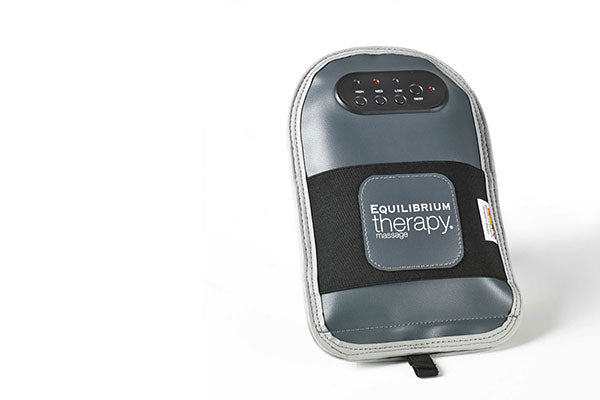The Equilibrium Therapy Massage Mitt is a handy tool to help keep your horse relaxed and supple. It can be used in a variety of ways to help your horse.
1. GENERAL MASSAGE/WARM UP
You can use the mitt as a general full body warm up for the horse or use it to target discipline specific muscle groups.
As an all over massage:
Use the massage mitt in a slow sweeping motion over all muscle groups shown below, running in the same direction as the hair. Spend 2-minutes on each muscle group, making sure that you repeat this on both sides of the horse.





2. DISCIPLINE SPECIFIC WARM UP
Different disciplines put demand on different muscle groups depending on what is required of the horse. Spend longer on the areas that are specific to what you are about to do; this can prep the muscles for work and reduces the risk of strains. It can also help to increase flexibility and therefore range of movement. We suggest 4-minutes per targeted muscle group, again being sure to do the same on both sides of the horse.
Dressage
Show Jumping
Gluteal muscle group, biceps femoris, triceps. Back also important.
Cross Country
Hamstring group, biceps fem, semiten, semimemb
Endurance
Hamstrings, back
Showing
As for dressage
3. TARGETED AREAS
If you have had a musculoskeletal therapist (ie. physiotherapist, chiropractor, massage therapist, etc.) treat your horse, they may well have identified areas where your horse is tight or over compensating. They may refer to these specific areas as trigger points or knots. These areas of muscle tension, if left untreated, can gradually worsen over time and then become more and more difficult to resolve. One reason for this is that as the muscle tightens the nutrient and oxygen supply to the muscle is restricted and the muscle fibers start to stick, or adhere, together. The body will then naturally guard the area so as to not trigger any pain signals. Without stretching or massage these are unlikely to self-resolve.
Knots can be caused by:
Overuse of a muscle – This could be due to compensation where a muscle is overworking to protect a painful joint; this is common in the hamstring muscle group where a horse is suffering from DJD in the hocks. Alternatively, it could be training-related if a horse has been asked to work in a way that they are not yet strong enough to work in, and for too long, or from a repetitive action, such as eating from a hay net.
Muscle strain – This could be a slip in the field or a tweak in the school if a horse is perhaps not warmed up properly. This is quite common in spooky horses that suddenly fly sideways.
Restricted movement – The mammalian body is not designed to stay in one position for too long, muscles have elastic properties that need to stretch and move to stay healthy. Stall rest or long-distance traveling can therefore often be the root cause of muscle knots.
Using the mitt for trigger points/knots
- Use the mitt in a stroking motion over the general area for 1-2 minutes on a medium setting to warm-up the area.
- Next, hold the mitt on the knot/trigger point for at least 5 minutes (on medium, or high if required). If your horse is comfortable, start to apply some pressure through the mitt during this time. This can help to increase the depth of the massage. Some horses will lean into the mitt which is a sure sign that you’ve hit the spot!
- Then use a stroking motion again for a further 1-2minutes (on medium or low) to help drain away any toxins that have been released into the blood from the massage. Make sure plenty of fresh water is available, as a good massage can make a horse thirsty. Also, you may want to try feeding a supplement with Vitamin E to support muscle recovery.
Apply this method to each point that needs treatment. This is a really good method to warm-up a targeted area prior to any prescribed stretches.
It is not uncommon to need to repeat this on both sides of the horse in the same area, depending on the cause of the muscle tension.

